'Patients used to come here to die, now they come to live'
- Published
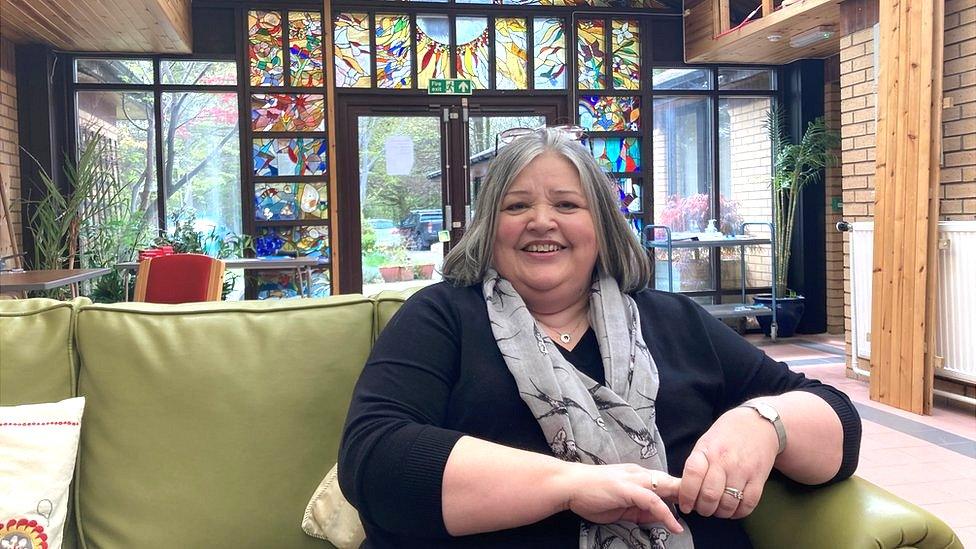
Liz Marr joined Milestone in 1995 and now runs the centre
Liz Marr has been looking after people with HIV for almost 30 years. She says that in the early days her patients came to Scotland's Aids hospice to die - but now they come there to live.
The former oncology nurse decided to change her career after a close friend told her that he had HIV.
Liz wanted to see him, but he would not let her. He locked himself in his house and died alone.
"He didn't want to see anyone, it was horrible. He hid away when we wanted to spend time with him," she told BBC Scotland.
"It really put HIV on my radar and let me see how difficult it is for the families as well as the person to cope with."
It was then she saw an advert for a nursing vacancy at Milestone - Scotland's only Aids hospice.
She said: "It just fitted and felt right."
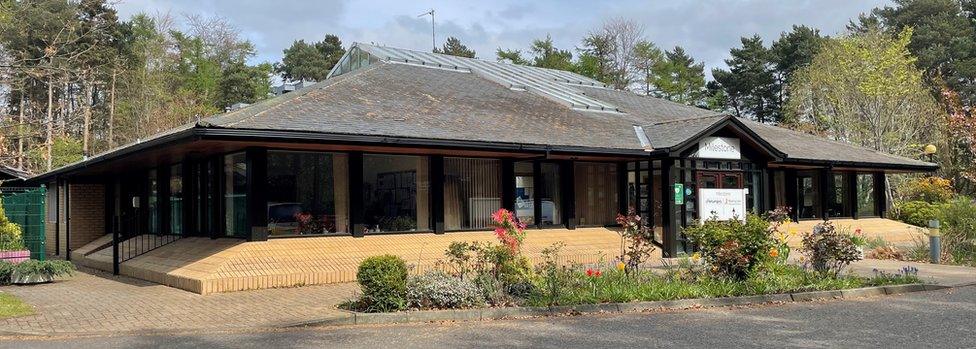
Milestone is located in the suburbs of Edinburgh
Liz joined Milestone in 1995 and now runs the centre.
She said: "There was a high rate of death in the early days.
"In the first three weeks of me starting here seven people died.
"They didn't come in and die quickly, it was a gradual process.
"Their immune systems were damaged and after any illness they never quite got back in terms of where they had been health-wise.
"It was a deterioration. It was a chaotic, busy and sad time."
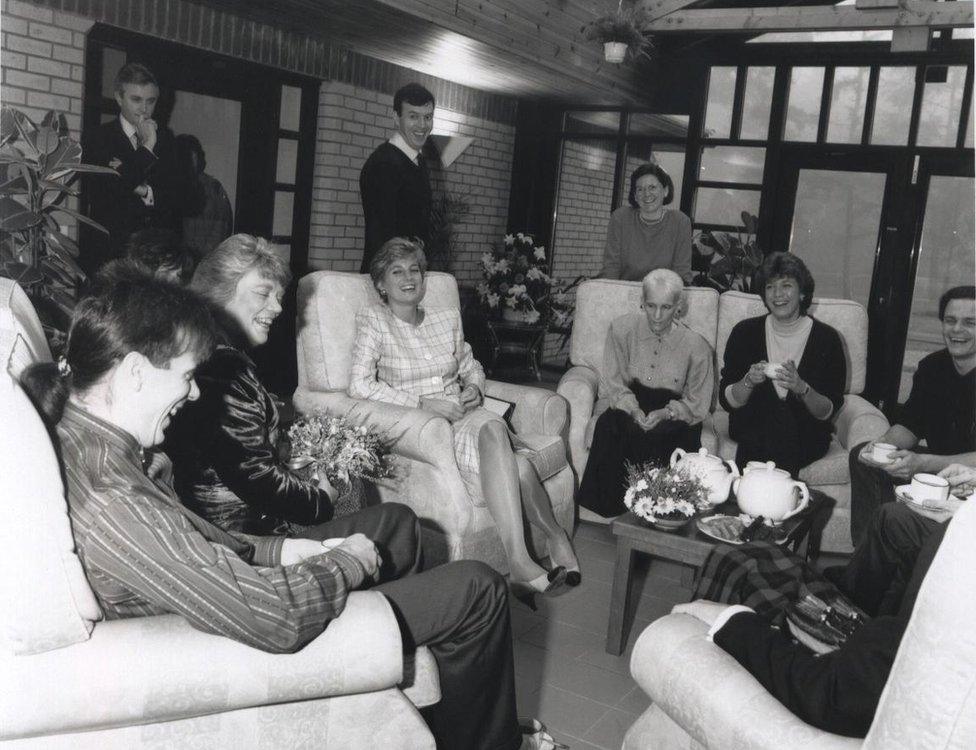
Princess Diana at Milestone House in Edinburgh in October 1991
But she said it was never a sad place.
"Sad things happened but it never felt like a sad place because people would congregate in the main area where there was a lot of chat and banter and laughter.
"They dealt with sadness very well and we would light a candle on the desk when someone passed away and it would stay lit until after their funeral."
The charity Waverley Care was founded in 1989, when the HIV epidemic in Edinburgh was at its height.
The city had become known as the Aids capital of Europe after a major increase in the numbers of intravenous drug users, particularly in housing schemes such as Muirhouse and Pilton.
Cheap heroin from Afghanistan and Iran hit Scotland's capital hard in the early 1980s, with the number of addicts rising from a few dozen to thousands.
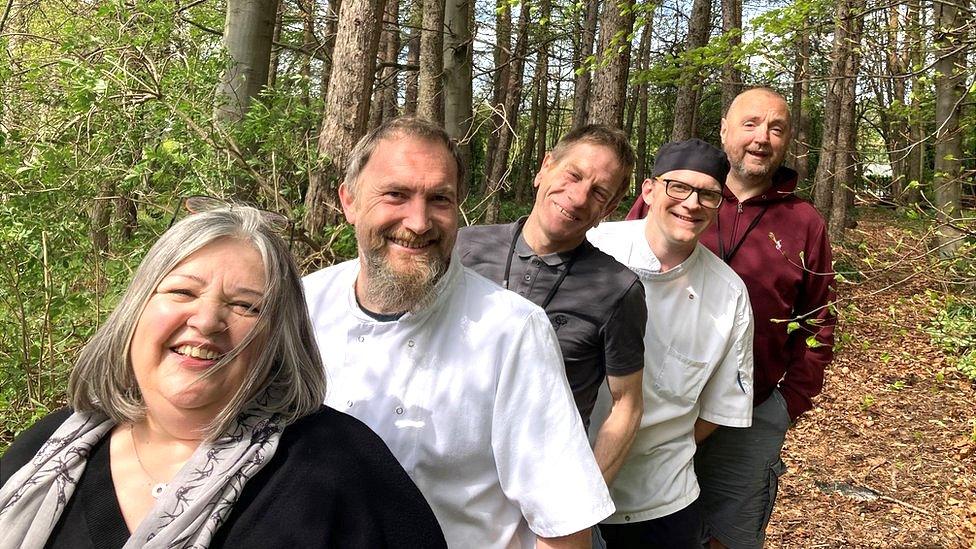
Liz Marr with some members of her team: Jim Dakin, Robin Beagley, Douglas Yuill and Tam Armstrong
HIV was a relatively new illness at the time, and effective treatments were still years away.
People were becoming very ill and dying, and had nowhere to turn to for support. Stigma and fear was everywhere.
Waverley Care developed the UK's first purpose-built Aids hospice, which officially opened its doors in January 1991.
At the time, the service existed to provide dignity and care for the dying and emotional support for their family and friends.
Liz said people would come to the centre when they were diagnosed.
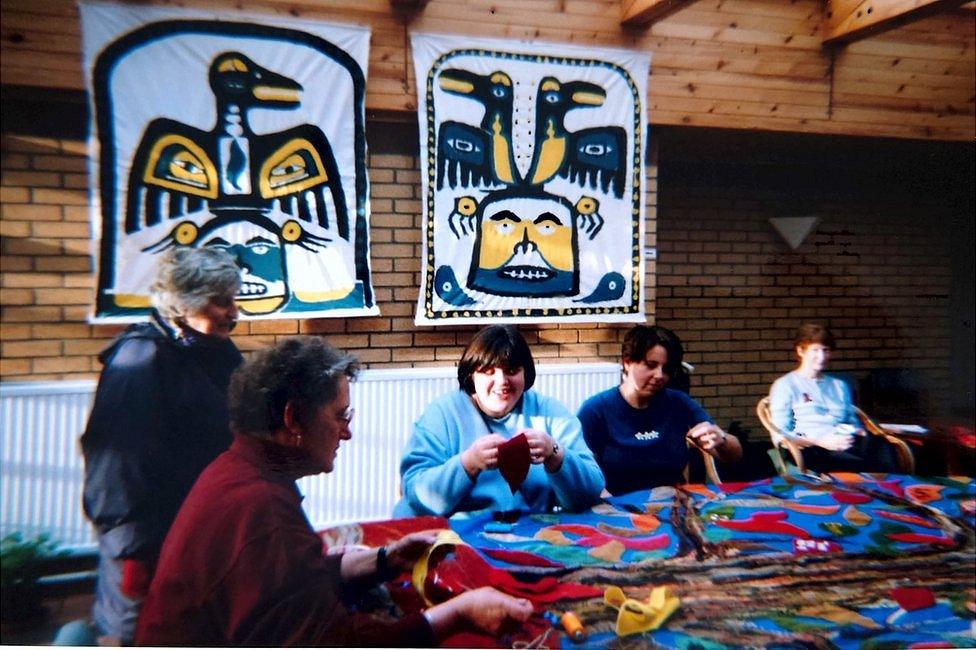
Liz helping to make a huge quilt with a patch for every resident in 1998
She said: "Everyone was in the same boat and that helped the situation.
"A lot knew each other as they grew up together as they were from the same areas. It was all their peers.
"It was a strange place and one I had never experienced before as I had come from oncology at the Western General Hospital, which was predominantly older people - but here it was people my own age.
"So I knew about death and dying but not among my peers."
Milestone's early focus on end-of-life HIV care began to evolve when new, more effective treatments began to emerge.
These new treatments, known as Anti-Retroviral Therapies, were better at controlling the condition, meaning people could live longer with HIV.
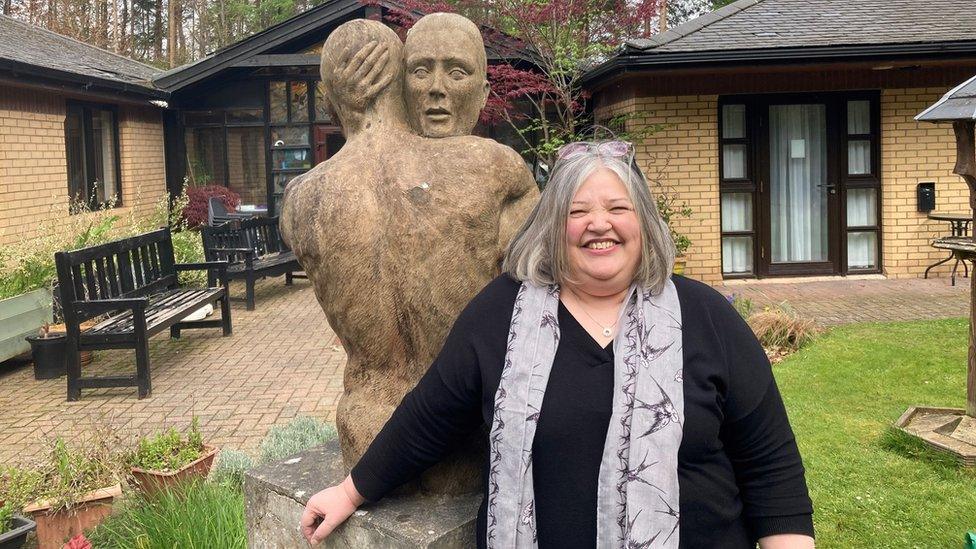
An exhibition of pictures from Milestone over the years opens on Friday at the National Library of Scotland
Liz says it is now "incredibly" rare for people to die as a result of HIV, and it is now a far more manageable long-term health condition.
As a result, Milestone's mission also evolved. The focus shifted towards helping people to live well.
It works with people who are living with HIV or hepatitis C, a condition that affects the liver. Some homeless people also use the facility for respite care.
"Patients used to come here to die, now they come here to live," said Liz.
"When people realised they were not dying they didn't know what to do with themselves.
"That is a big psychological transition and we now help them negotiate through that.
"It's fantastic when we look at the distance we have travelled since the 80s. A whole generation was almost wiped out, so it is staggering to see where we are now."